Articles about reggae music, reviews, interviews, reports and more...
Interviews: Back To Africa Festival 2013
- Home
- Articles
- Interviews
- Interviews: Back To Africa Festival 2013

Interviews: Back To Africa Festival 2013
"It's a dream that's reached the next level of reality"
For the second year running United Reggae was present at Mad Professor’s Back To Africa festival at his compound in the coastal village of Batukunku in Gambia. With many of the logistical teething problems from 2012 solved the three day programme ran smoothly, with only Winston McAnuff’s appearance on the Saturday being cut short by speeches from local dignitaries and a brief powercut on the Sunday holding up proceedings.
There were fewer foreign visitors and the lineup was considerably scaled back from 2012, with no live band. But the festival concept and demographic had shifted more to bringing UK based artists to Africa for the benefit of the local people, who gathered in their hundreds when night fell.
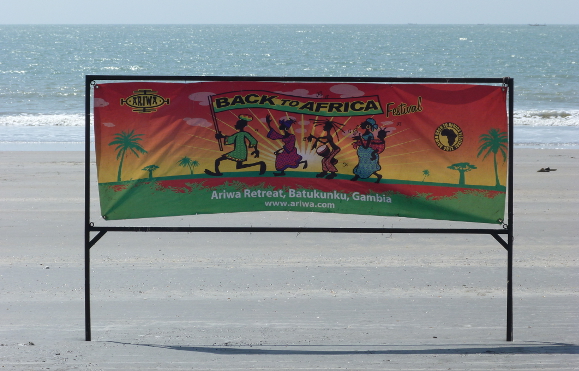
Lively up-tempo deejay appearances by General Levy on the Friday and Dego Ranks on the Saturday were particularly well received by the African youth, yet singers and mellower sounds also had their place. Highlights included an extraordinary performance from Dennis Bovell - using just his voice, a sampler, Black Steel and Lady Dread on harmonies and Professor’s son Joe Ariwa on the decks - and the lovers rock beach party where a mix of dreamy UK and JA romantic classics and the soul covers that inspired them were accompanied by scorching sunshine and steel drums.
When Prof played his dub set dwarfed by towering pylons and the charismatic sky his music, a more mechanised reggae than Bob Marley’s, seemed at home in the mixture of beautiful countryside and industrial growth of modern Africa. United Reggae asked various singers, deejays, players of records and instruments and festival goers what the concept of Back To Africa meant to them. These are the answers they gave.
Sugar Dread, selector for Vibes FM, London, United Kingdom
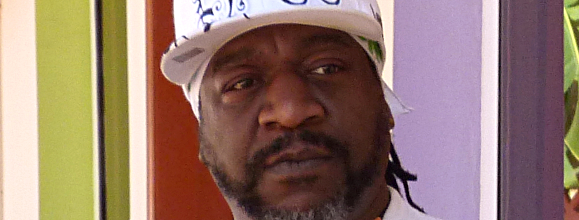
“As an original African whose ancestors were taken away, coming back to Africa, to me, is literally the homecoming. Our ambition as a radio station is to reach out. Mad Professor is producer who’s always into that same travelling and carrying the music out. Obviously bird of a feather, we came together. It’s not about money, it’s just about coming home, and I’m glad I did. This year everything’s coming together. Obviously things will take time but we’re sending out a great message, especially to the youths, a lot of them maybe are deprived and have not had the chance to hear or see anybody from the reggae music, and it’s great to be present for that.”
Asher Selector, Geneva, Switzerland
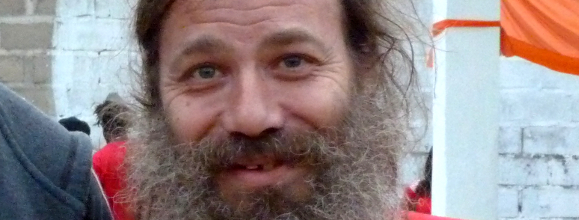
“It’s been a pure vibe, my brother. It’s the second year now that Mad Professor put it out with the Ariwa family and it feels niceness because it’s a good vibe and at the same time it’s the music for all the Africans, and I feel it to the max. It carries what is not every day, like more dub music, artists they don’t see every day on stage. I love it man, the people from Africa, the people from all over the world. It’s pure unity, oneness, so United Reggae, Rastafari, every time man. More love.”
Redhed QI, singer, writer, London
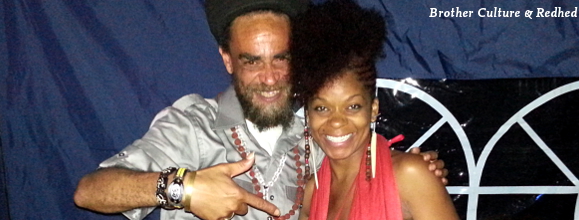
"It's much more than a meaning. It's a deep rooted feeling. Like having your umbilical cord reattached to your fertile mother. Life begins again."
Cecil Reuben, selector for JahrevelationMuzik, London, United Kingdom
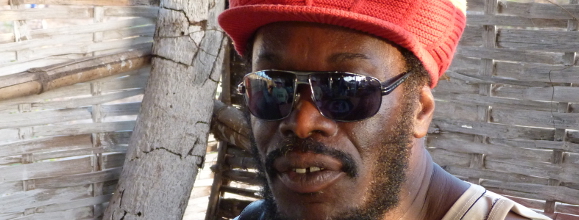
“Back to Africa means a lot because from when I knew myself to be a conscious youth it’s always been my aim. From a little 13 year old youth hearing the Rastaman talk about Africa until my conversion in 1972 it has always been a theme which I promote and establish. Just the fact of the name alone: Back To Africa festival - it means I have to be part of it. To see what I can do to endorse it and make it work, we’ve got work to do to help it, that’s why I’m here and it means that much to me to even be involved in it.”
Winston McAnuff, singer, Jamaica/France
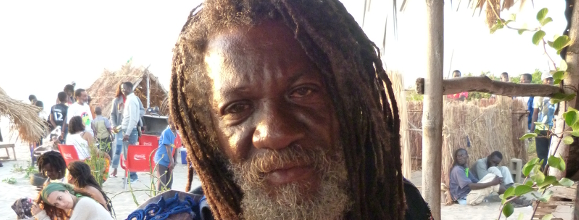
“It’s just chickens coming home to roost. It’s making back and forming that union with the motherland. I don’t think it’s that big a deal because people could come from the diaspora and reach places like England and go as far as Japan – even in China you see Jamaicans. So to reach to Africa, I don’t think it’s that hard. I see it as a good, positive sign, for all people talking about Africa, coming back to Africa, going back to Mama Africa. A lot of the people in England, they’re reaching a glass ceiling where you try to be successful but you reach some place where you can’t move, and when you look up, there’s a man looking down. Sometimes you have to get out to get in. Suppression cause explosion. Sometimes you’re in a situation where the solution is out of the box.”
Mad Professor, producer, engineer and festival organiser, London, UK
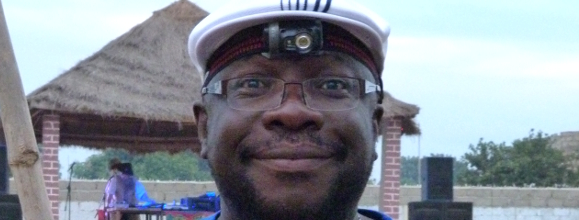
“Africa is a continent that has been misunderstood, been misrepresented, been mistreated. There’ve been people doing things and trying to do things and it’s not easy. The country’s also rich with raw material, raw talent. It’s got a lot of potential for the future of the world who want minerals and that sort of thing; this is the place. It’s just got to be looked after. We come here to really help the local people, we work closely with people in the village, we’re developing roads, lights, electricity systems. It’s a social thing.”
MC Trooper, MC for JahrevelationMuzik, London, United Kingdom
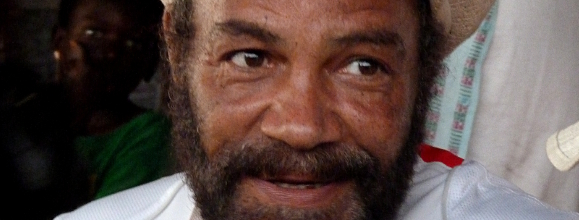
“Back To Africa for me is the realisation of what we’ve been talking about as Rastafarians for a very long time, and this is the reality of all that talk really. We’re making the links now, we’ve planted the seeds, and every time we come now it’s like we’re watering it to bear fruits in the future. So I give thanks.”
Dennis Bovell, singer, producer and musician, London, United Kingdom
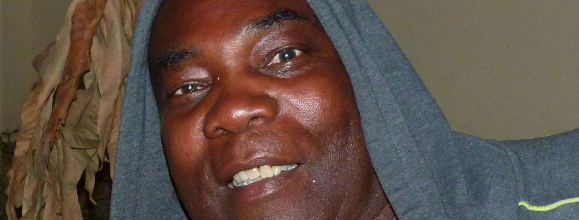
“For me Back To Africa means a step forward in us Afro-British organising to come to the motherland to display our talents and to meet our long-lost brothers and sisters and get the feel of where we came from. I support Neil 100% in this venture. That’s why I’m here, and I’m loving it.”
Mad Professor, producer, engineer and festival organiser, London, UK
“Last year we had more British blacks, we didn’t have so many this year. I can understand, because the whole economic situation in London, most people can’t find £600 or £700, and if they do, they’ve got to pay some bills with it. But even British blacks who repatriated here; last year there were more in the Gambia, this year I’ve haven’t seen a lot of people. Even the people coming here on the plane, we tend to get a lot more European people here, more than ever. There’s a load of Swedes here, a load of Germans, Swiss, Belgians; so the makeup is different; and there’s a lot more Africans. I think Gambian people really love the idea of this festival; they love the idea of people coming here, whether English people or what. They love to meet people, they want to interact. Enough of them now are on the internet, they’ve got the internet on their phones, they’re not far behind the rest of the world when it comes to technology. This year we certainly had more Gambians.”
DJ Fireman, selector, Latikunda, Gambia
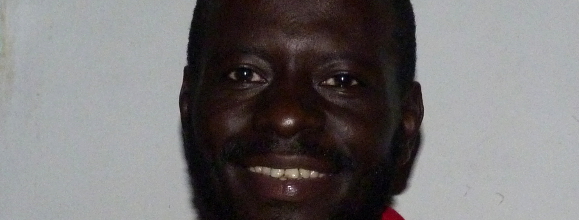
“This marks the second time so it means a lot. It brings enough artists together, it brings the cultures together, it brings the world to remember where Batukunku is, and it makes many, many people move from places to places just to come to Batukunku. They’ve got many artists so you have experience, you have dance, you have ambience, you get a knowledge out of it.”
Brother Culture MC for JahrevelationMuzik, London, United Kingdom
“Back to Africa is a great home coming for all. It is a moment of great coming together of great artists, holy men and party goers. One of the greatest event’s I’ve taken part in. A blessed occasion.”
Black Steel,multi-instrumentalist, London, United Kingdom
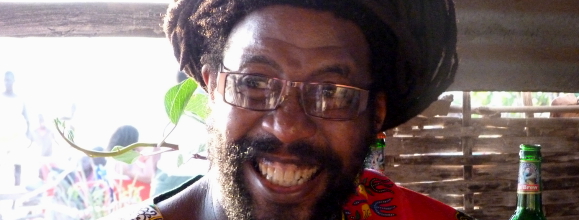
“Mad Professor has been talking about it for probably 20 years now. We were doing a programme for Snub TV on BBC 2 in about 1990 and I was on there, backing Jah Shaka on stage. They were interviewing Shaka, then they interviewed Mad Professor. I was watching the video again the other day and I said “Oh right, he was talking about the Back to Africa thing back then”. So it was a long time since he’s been talking about it. So from there, it takes years and now his dream has come true. Now he’s got what he deserved and I’m happy for him. I’ve been with Ariwa for 29 years. Last year wasn’t too bad but this year is better. Artists like Yabby You said “Give a little to the poor”. I follow that advice, so anytime I come back to Gambia, I do the same thing: give a little to the poor. It doesn’t matter what it is; give them something. They are very, very pleased about it, and I’m happy too. I just love that Professor’s progress is really strong now and I’m very happy for him. I just want to say that it’s really nice to come, I love it very much.”
Mad Professor, producer, engineer and festival organiser, London, UK
“Now that we’re here it means that it’s not a dream, or it’s a dream that’s reached the next level of reality, so you wake up and pinch yourself. It’s real! For me, seeing 2000 people here last night jumping around, a mixture of people, I feel like we’ve certainly achieved something, something that I’ve spent decades dreaming about. Last year we tried it, and whilst it wasn’t a shambles, it was a whole learning process for me. It was the first time I’d done any festival, much more one in Africa. I spent a lot of money, oh my God. After a while I don’t care, but I felt great because we’d done it. Loads of bad things with the logistics like the hotels were not good and the travel between the hotels and the venue was terrible. This year we fixed up quite a few of those things. Still a few things to tighten up but at least most people who came last year and this year felt that progress has been made along the way, and I too.”
Gypsy, singer, Tokyo, Japan
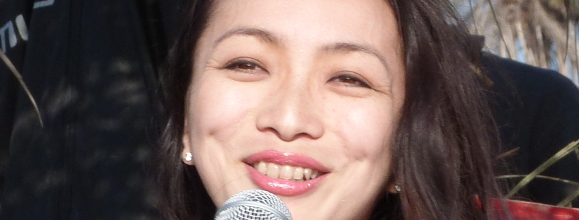
“Back to Africa means respect. Essentially, we should respect each other more. It’s important to admit differences, if we have any. I wanted to say that we can share the soul with music and I believe it will lead to instinctive behaviour for all.”
Joe Ariwa, producer, engineer and festival organiser, London, UK
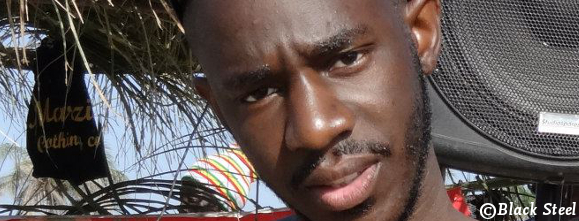
“Growing up in the UK as a black youth, I've always felt as if there were some sort of invisible barrier holding me back from excelling to the heights of my dreams. The attitude of people with authority in London in particular always seems to be a negative one. And when seeking help to pursue my journey in life, the answer always seems to be “No” without them even considering whether “Yes” is a possibility. The Gambia provides a reassurance of freedom. And although The Gambia is considered a third world country, it gives me a feeling as if I can achieve anything I desire. The people are warm and friendly and will bend over backwards to help you. Some of them seeking a monetary reward and some just keen to help. Back to Africa has given me and my peers a new meaning to life. Black liberation! Back to Africa for me is a time to escape from the Babylon system for a few weeks, enjoy good music, meet up with old and new faces from all around the world and have a big party in the sun!”
Mad Professor, producer, engineer and festival organiser, London, UK
The Gambians they love dancehall. I mean they don’t really love roots music so much, or even dub. But it’s an educational process. I remember 25 years ago when I was first going into France and places people didn’t know about dub music either. I would play dub and people would be like “Oh, what’s that?” So it’s like the same thing, but I’m a fighter, I’m not a quitter. By all means, even if people don’t clap when I play a track, it doesn’t bother me.”
Mo Sohna aka Herbalist, taxi driver and MC, Serrekunda, Gambia
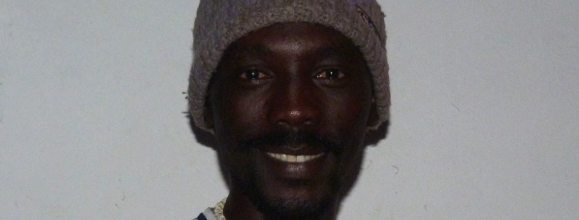
“Back to Africa means roots. It means you come back to home. The place where everybody comes from. That’s what Back to Africa means. I’ve been enjoying the festival for three days, man. Very nice festival. Best in the west.”
Ensa Gitteh, fruit seller, Sanyang, Gambia
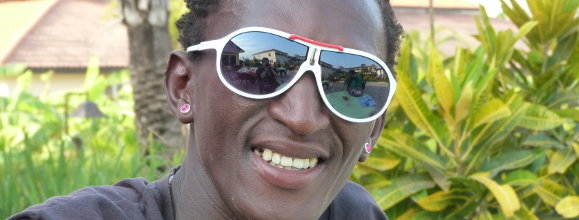
“Back to Africa means a lot to me. When people come from Europe or Jamaica, celebrate our culture and music with them so this means a lot to us. When we see people to in Africa many times, we are very happy. The music was nice and everybody liked it, hopefully. We wish to see many more big artists. We want to see Sizzla, we want to see Beres, we want to see Morgan Heritage, we want to see Busy Signal, we want to see Mavado in the festival. The festival now is part of the African culture because now many people realise it’s here. It’s just two years now but people are getting prepared, more, more and more coming, but they’re expecting to see many, many more artists than we’ve seen last year and this time. To make it more nice for us they bring more big artists and also they give chance to many more Gambian artists to perform there as well, to make it together. Real back to Africa.”
Mad Professor, producer, engineer and festival organiser, London, UK
“The Gambian people, they receive us very well. Last year we had pressure from the police as well, this year we didn’t have pressure from the police. It’s like you’ve got to prove yourself. We had the airlines coming more on-board this time; they still need to do better. For me, I feel good. If it carries on this way, within the next year or two I think we’re going to outgrow this venue, although last year it was actually bigger because we had a ground behind us but that was probably too big. Next year we will have a full live band and you can quote me on that”.
Winston McAnuff, singer, Jamaica/France
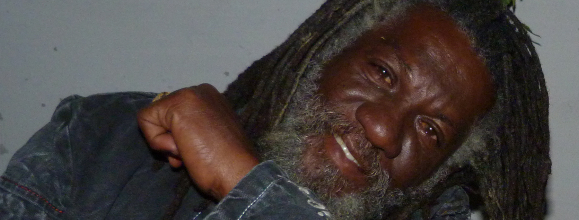
“This festival is the spark that creates a flame. The people I’m working with in France are very worried about me going out to Africa. It’s like your woman saying she’s going to a party with some guys and she has on a sexy dress (laughs), wouldn’t you be worried? Even though you say “Darling, have a nice time” in your heart you’re saying “Um-hmm!” I think they’re worried that I won’t come back!”
Read more about this topic
Read comments (2)
| Posted by Neil on 04.04.2013 | |
| Great interviews from Angus and Veronica. It's good the way you got Everyone's perspective on Africa. I'm amazed that Black Strel remembers That BBC 2 interview from 23 years ago! Nothing happens before the time! |
|
| Posted by Asher Selector on 04.05.2013 | |
| Irie Big Up Reggae United , Mad Professor & Yu All - RASTAFARI ... Nice Work & Interviews ... People of GAMBIA Laaaaarge Love , Raspect & Culture ... Yes & Yes This Year it was Absolutly FANTASTIC Festival ... Love It & Looking Forward for the Chapter 2014' - NUFF VIBES & MUZIK ... I can not really say I going BACK Home ... But Wat I Can Say To All GAMBIAN You MAKE Me FEEL Like I Am @ Home ... So Yes I Feel Like HOME - THANKS GAMBIA & THANKS DI ALL ARIWA FAMILY - Iriiiiiiiiie ... | |
Comments actually desactivated due to too much spams
Browse by categories
Recommended Articles
Latest articles
Recently addedView all
© 2007-2026 United Reggae. All Rights Reserved. Reproduction in whole or in part is prohibited. Read about copyright
Terms of use | About us | Contact us | Authors | Newsletter | A-Z














